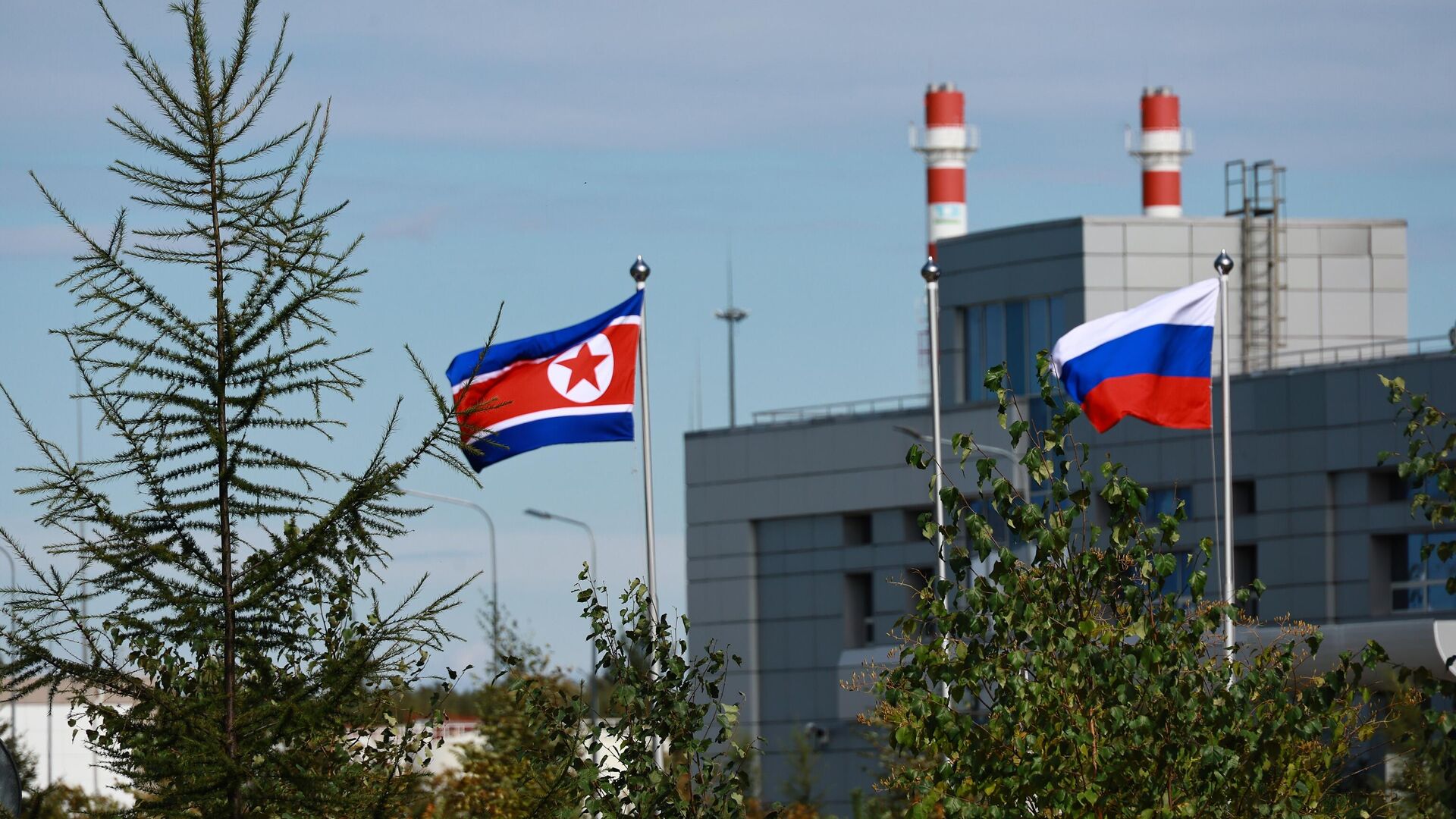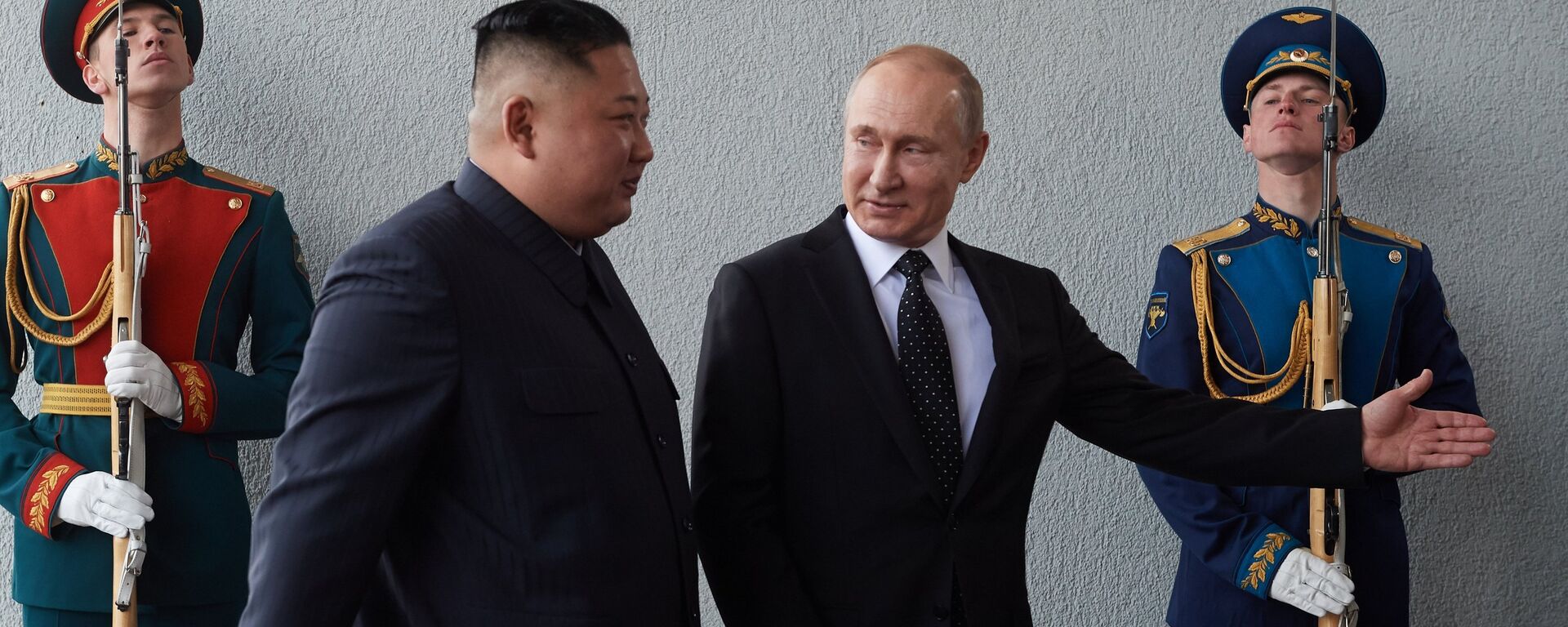https://en.sputniknews.africa/20230913/russia-firmly-said-no-more-sanctions-against-north-korea-lavrov-outlines-1062086103.html
Russia Denies Further Imposition of Sanctions Against North Korea, FM Lavrov
Russia Denies Further Imposition of Sanctions Against North Korea, FM Lavrov
Sputnik Africa
UN Security Council sanctions against North Korea were first imposed in 2006 to prohibit Pyongyang from conducting nuclear tests or launching ballistic... 13.09.2023, Sputnik Africa
2023-09-13T13:58+0200
2023-09-13T13:58+0200
2023-09-13T15:52+0200
russia
democratic people's republic of korea (dprk, north korea)
international
sanctions
west
sergey lavrov
kim jong un
united nations (un)
united states (us)
vladimir putin
https://cdn1.img.sputniknews.africa/img/07e7/09/0d/1062077926_0:180:3072:1908_1920x0_80_0_0_3aaa1280ff36d78ec6a932f31e9aa0c8.jpg
Russian Foreign Minister Sergey Lavrov said that both Russia and China have firmly stated their opposition to any re-imposition of sanctions on North Korea.Lavrov emphasized that the sanctions imposed on Pyongyang were established "in a profoundly distinct geopolitical context," marked by "challenges in fostering dialogue and intense debates within the UN Security Council.''The top diplomat attributed Moscow's paradigm shift to false promises by Western countries to pursue political and humanitarian avenues to address the North Korean issue.The minister added that, as a result of Western deception, Moscow and Beijing refrained from passing another sanctions' resolution in May 2022. Instead, they joined forces to create a resolution that addresses humanitarian concerns and encourages the revival of the political process, with the ultimate goal of establishing security in Northeast Asia.However, Lavrov pointed out that numerous countries - the US, South Korea, Japan, the UK, Australia, and New Zealand - are not only supplying weapons to the region but also relocating vital components of their strategic forces to the southern part of the Korean Peninsula.Lavrov's remarks come amid North Korean leader Kim Jong Un's visit to Russia, where he held one-on-one talks with President Vladimir Putin.
https://en.sputniknews.africa/20230913/1062084159.html
russia
democratic people's republic of korea (dprk, north korea)
west
united states (us)
Sputnik Africa
feedback@sputniknews.com
+74956456601
MIA „Rossiya Segodnya“
2023
Maxim Grishenkin
https://cdn1.img.sputniknews.africa/img/07e7/0a/17/1063018107_0:0:1104:1103_100x100_80_0_0_03090c85a11f5d2e8a19cf1d989443c9.jpg
Maxim Grishenkin
https://cdn1.img.sputniknews.africa/img/07e7/0a/17/1063018107_0:0:1104:1103_100x100_80_0_0_03090c85a11f5d2e8a19cf1d989443c9.jpg
News
en_EN
Sputnik Africa
feedback@sputniknews.com
+74956456601
MIA „Rossiya Segodnya“
Sputnik Africa
feedback@sputniknews.com
+74956456601
MIA „Rossiya Segodnya“
Maxim Grishenkin
https://cdn1.img.sputniknews.africa/img/07e7/0a/17/1063018107_0:0:1104:1103_100x100_80_0_0_03090c85a11f5d2e8a19cf1d989443c9.jpg
russia, democratic people's republic of korea (dprk, north korea), international, sanctions, west, sergey lavrov, kim jong un, united nations (un), united states (us), vladimir putin
russia, democratic people's republic of korea (dprk, north korea), international, sanctions, west, sergey lavrov, kim jong un, united nations (un), united states (us), vladimir putin
Russia Denies Further Imposition of Sanctions Against North Korea, FM Lavrov
13:58 13.09.2023 (Updated: 15:52 13.09.2023) UN Security Council sanctions against North Korea were first imposed in 2006 to prohibit Pyongyang from conducting nuclear tests or launching ballistic missiles. With each new nuclear test, the UN Security Council further tightened sanctions against North Korea.
Russian Foreign Minister Sergey Lavrov said that both Russia and China have firmly stated their opposition to any re-imposition of sanctions on North Korea.
"Since the last resolution was adopted [in 2017], we have firmly said that there will be no more sanctions against North Korea. Our Chinese partners have taken the same position," the minister noted.
Lavrov emphasized that the sanctions imposed on
Pyongyang were established "in a profoundly distinct geopolitical context," marked by "challenges in fostering dialogue and intense debates within the UN Security Council.''
The top diplomat attributed Moscow's paradigm shift to false promises by Western countries to pursue political and humanitarian avenues to address the North Korean issue.
"Alongside the measures taken by the UN Security Council, all Western colleagues promised to move in parallel on the political track and solve humanitarian issues. This was another lie: we [Russians], the Chinese and the North Koreans were deceived," Lavrov remarked.
The minister added that, as a result of Western deception,
Moscow and Beijing refrained from passing another sanctions' resolution in May 2022. Instead, they joined forces to create a resolution that addresses humanitarian concerns and encourages the revival of the political process, with the ultimate goal of establishing security in Northeast Asia.
However, Lavrov pointed out that numerous countries - the US, South Korea, Japan, the UK, Australia, and New Zealand - are not only supplying weapons to the region but also relocating vital components of their strategic forces to the southern part of the Korean Peninsula.
"Their flat refusal to engage in any political measures puts an end to any further attempts to sneak a sanctions' resolution through the Security Council," the head of Russian diplomacy concluded.
Lavrov's remarks come amid North Korean leader Kim Jong Un's
visit to Russia, where he held one-on-one talks with President Vladimir Putin.



